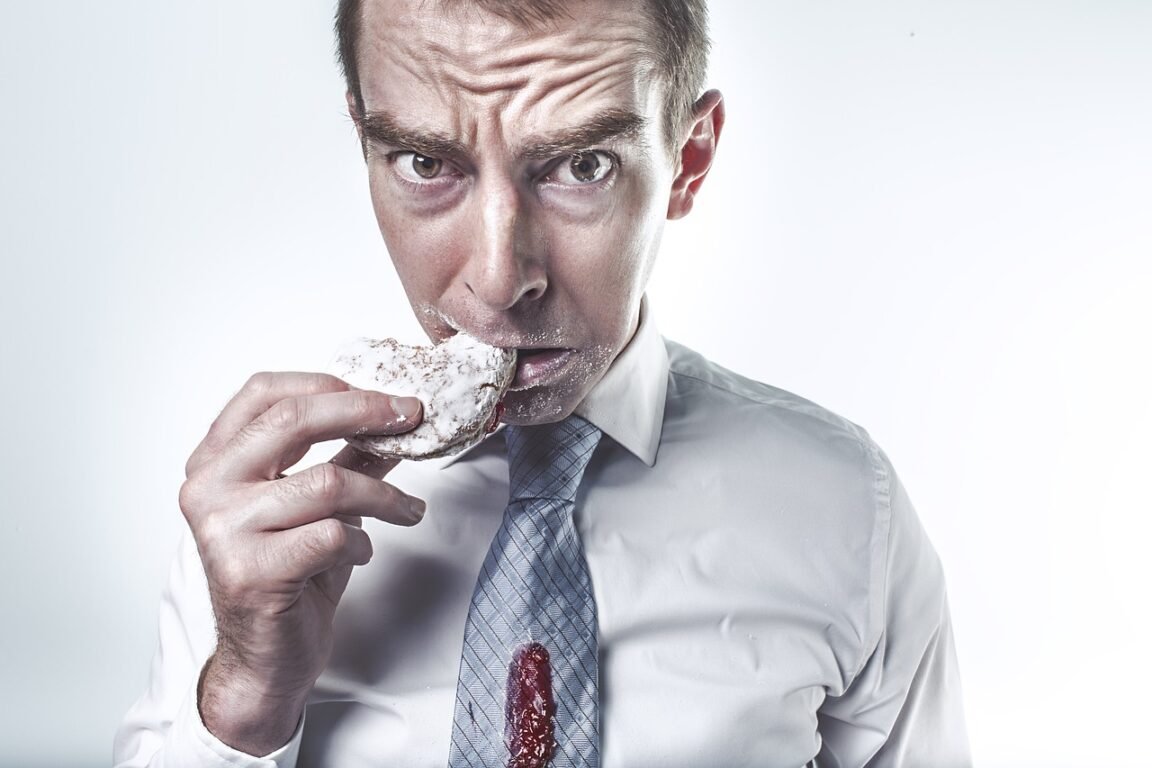Exercising is a great way to maintain your health and fitness, but it’s just as important to pay attention to what you eat after a workout. Eating the wrong foods can leave you feeling sluggish, tired, and even sick. That’s why we’ve put together a list of 12 Foods to Avoid After a Work-Out. From sugary snacks to salty chips, these are the foods you should avoid if you want to feel energized and ready to tackle your next workout.
1. Why avoiding certain foods after a workout is important

Exercising is not just about what you do during your workout; it’s also about what you do afterward. While it may be tempting to indulge in your favorite treats after a tough session, it’s important to be mindful of the foods you choose to fuel your body. Avoiding certain foods after a workout is crucial because what you eat can greatly impact your recovery and overall fitness goals.
First and foremost, post-workout nutrition plays a key role in replenishing your energy stores and repairing your muscles. By avoiding certain foods, you can optimize these processes and promote better recovery. Consuming sugary drinks and sports drinks, for example, can be detrimental as they often contain high amounts of added sugars that can cause inflammation and hinder your progress. Similarly, fried or greasy foods can be heavy on your digestive system, leaving you feeling sluggish and weighed down.
Processed snacks, high-fat foods, and alcohol are also culprits that can hinder your post-workout recovery. These types of foods can slow down digestion and interfere with nutrient absorption, ultimately slowing down your progress. Additionally, candy and sweets may provide a quick sugar rush, but they lack the necessary nutrients your body needs to repair and recover.
Fast food and dairy products can also be problematic choices. Fast food often contains unhealthy trans fats and high amounts of sodium, which can lead to inflammation and water retention. Dairy products, on the other hand, can be difficult to digest for some individuals, causing discomfort and digestive issues.
Overeating can also be counterproductive to your fitness goals. Consuming large portions of food can lead to bloating and discomfort, making it harder for your body to recover effectively. It’s important to fuel your body with the right amounts of nutrients but in moderation.
High-fiber foods and spicy foods can also be challenging to digest after a workout. High-fiber foods can cause bloating and gas, while spicy foods may irritate your stomach, leaving you feeling uncomfortable.
By avoiding these 12 foods after a workout, you can optimize your recovery and maximize the benefits of your hard work. Opt for nutritious, whole foods that provide the necessary nutrients your body needs to replenish energy stores, repair muscles, and promote overall well-being. Remember, the choices you make after your workout are just as important as the ones you make during it. So fuel your body right and reap the rewards of a well-rounded exercise routine.
2. Sugary drinks and sports drinks
When it comes to post-workout hydration, sugary drinks, and sports drinks may seem like a convenient choice. However, these beverages are not ideal for replenishing your body after a workout. Sure, they may provide a quick burst of energy, but they can do more harm than good in the long run.
Sugary drinks and sports drinks are often packed with added sugars, which can cause inflammation in the body and hinder your recovery process. Not only that, but they can also contribute to weight gain and increase your risk of developing chronic diseases such as diabetes and heart disease.
Instead of reaching for sugary drinks, opt for water or electrolyte-rich beverages to quench your thirst. Water is always the best choice to stay hydrated, and if you feel the need for extra electrolytes, try coconut water or make your own homemade electrolyte drink using natural ingredients like lemon, cucumber, and a pinch of salt.
Remember, the purpose of post-workout hydration is to replenish your body and aid in muscle recovery, so choose wisely and fuel your body with the right fluids.
3. Fried or greasy foods

After a grueling workout, it’s important to fuel your body with the right foods. That means avoiding fried or greasy foods at all costs. While they may be tempting, indulging in these types of foods can wreak havoc on your post-workout recovery.
Fried foods, like french fries or chicken nuggets, are typically cooked in unhealthy oils that are high in saturated and trans fats. These fats can lead to inflammation in the body and make it harder for your muscles to repair themselves. Greasy foods, such as burgers or pizza, are also heavy on your digestive system, leaving you feeling sluggish and bloated.
Instead of reaching for that greasy fast food, opt for healthier alternatives. Grilled chicken or fish, roasted vegetables, or a salad with lean protein are all great options that will nourish your body and aid in recovery. Remember, the choices you make after your workout can either hinder or enhance your progress, so choose wisely and prioritize your health.
4. Processed snacks
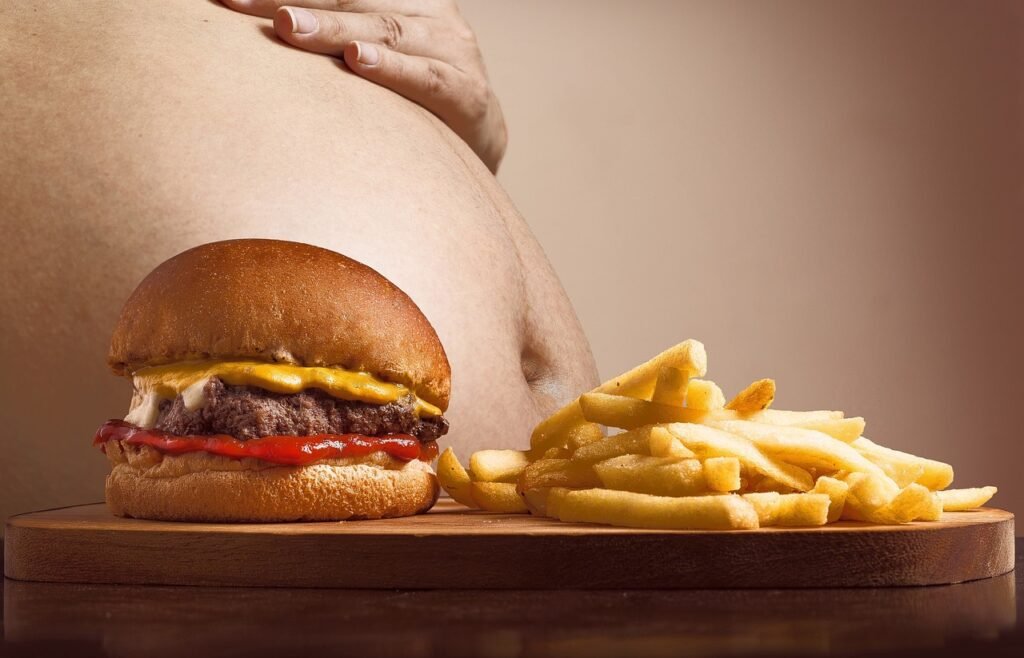
Processed snacks may be tempting after a tough workout, but they should be avoided if you want to maximize your post-workout recovery. These snacks, such as chips, cookies, and crackers, are often high in unhealthy additives like preservatives, artificial flavors, and excessive sodium. These ingredients can hinder your body’s ability to repair and recover after exercise.
Not only do processed snacks lack essential nutrients, but they also contribute to inflammation and can leave you feeling bloated and tired. They provide empty calories that do not provide the necessary fuel your body needs to rebuild muscle and replenish energy stores. Instead of reaching for processed snacks, opt for healthier alternatives like fresh fruit, yogurt, or homemade energy balls made with natural ingredients.
By avoiding processed snacks, you can better support your body’s recovery process and stay on track with your fitness goals. Choose whole, nutritious foods that nourish your body and promote optimal recovery after a workout.
5. High-fat foods
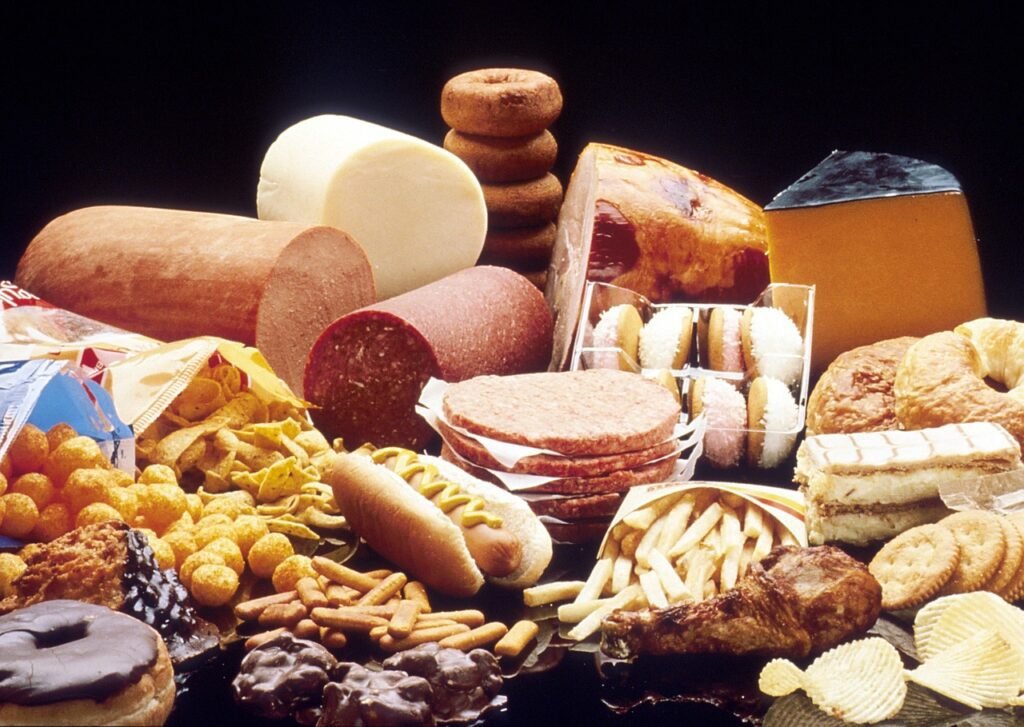
High-fat foods may be delicious, but they are not the best choice after a workout. While healthy fats are an important part of a balanced diet, consuming too much fat right after exercise can slow down your digestion and hinder your body’s ability to recover effectively. Foods like cheeseburgers, fried chicken, and creamy pasta dishes are high in unhealthy saturated and trans fats that can cause inflammation in your body and make it harder for your muscles to repair themselves.
Instead of reaching for these high-fat options, opt for healthier alternatives. Choose lean protein sources like grilled chicken or fish, which provide essential amino acids for muscle repair without the excess fat. Incorporate plenty of fruits and vegetables into your post-workout meals to get the necessary vitamins and minerals. Additionally, foods rich in healthy fats like avocado, nuts, and seeds can be a great addition to your diet in moderation.
Remember, the choices you make after your workout can either hinder or enhance your progress. So, be mindful of the high-fat foods you consume and prioritize nourishing your body with the right nutrients for optimal recovery.
6. Alcohol
Alcohol may be tempting to reach for after a workout, but it’s definitely a food to avoid. While it may be refreshing at the moment, alcohol can actually hinder your post-workout recovery and undermine all your hard work.
Firstly, alcohol is dehydrating. After a workout, it’s important to rehydrate your body with water or electrolyte-rich drinks, and alcohol can have the opposite effect. It can increase your urine production and lead to dehydration, which is not ideal for muscle recovery and overall well-being.
Furthermore, alcohol is high in empty calories. It provides no nutritional value and can contribute to weight gain, which can hinder your fitness goals. Additionally, alcohol impairs protein synthesis, which is essential for muscle repair and growth.
Instead of reaching for that post-workout beer or cocktail, opt for a healthier alternative. Water or herbal tea can help rehydrate your body, and nutrient-dense snacks like fruits or nuts can provide the necessary fuel your body needs. Remember, the choices you make after your workout are just as important as the ones you make during it. So, skip the alcohol and prioritize your recovery and well-being.
7. Candy and sweets
Candy and sweets may be tempting after a tough workout, but indulging in these sugary treats is not the best choice for your post-workout recovery. While they may provide a quick sugar rush, candy and sweets lack the necessary nutrients your body needs to repair and recover effectively. Instead, they can leave you feeling sluggish and hinder your progress.
The problem with candy and sweets lies in their high sugar content. Consuming excessive amounts of sugar can lead to inflammation in the body and cause a spike in your blood sugar levels, followed by a crash. This rollercoaster effect can leave you feeling tired and drained, which is the opposite of what you want after a workout.
Instead of reaching for candy and sweets, opt for healthier alternatives that still satisfy your sweet tooth. Fresh fruit, such as berries or watermelon, can provide a natural sweetness along with essential vitamins and minerals. You can also try making your own homemade energy balls or protein bars using natural sweeteners like dates or honey.
Remember, the choices you make after your workout can either support or hinder your progress. So skip the candy aisle and opt for nutritious treats that will fuel your body and promote optimal recovery.
8. Fast food
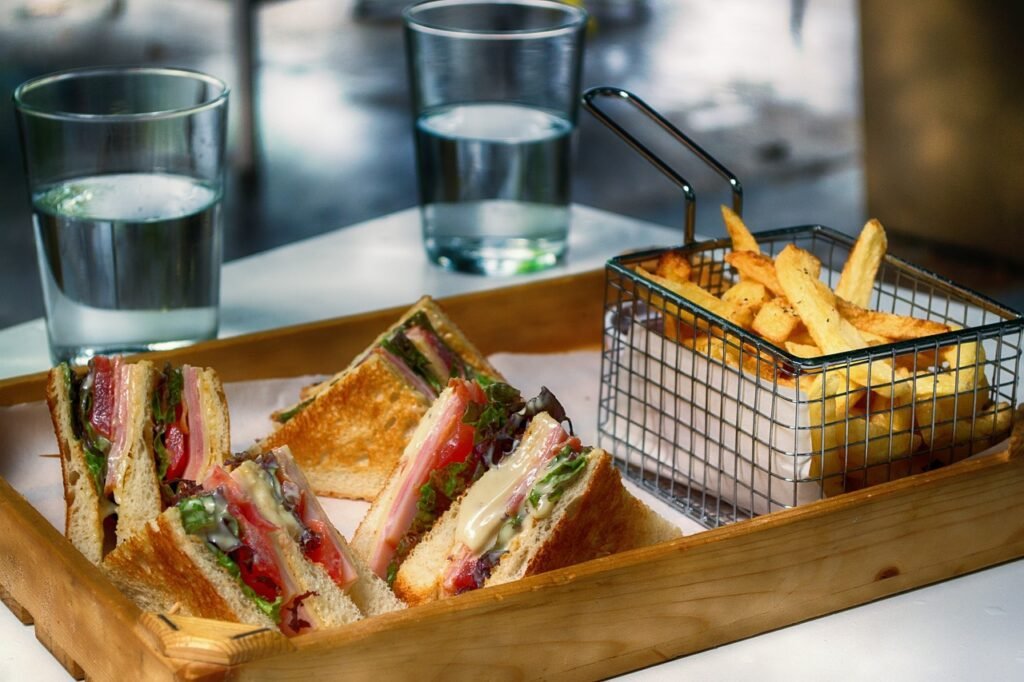
Fast food may be tempting and convenient after a tough workout, but it’s definitely a food to avoid if you want to optimize your post-workout recovery. While it may satisfy your hunger cravings, fast food is typically high in unhealthy trans fats and excessive amounts of sodium, which can lead to inflammation and water retention in the body. This can hinder your muscle repair and overall progress. Instead of reaching for that greasy burger or fried chicken, opt for healthier alternatives. Choose grilled chicken or fish as your protein source, which provides essential amino acids without unhealthy fats. Add plenty of fresh vegetables to your meal for added vitamins and minerals. If you’re in a hurry, consider meal prepping your own healthy options or seeking out fast-casual restaurants that offer nutritious choices. Remember, your body needs the right nutrients to recover effectively after a workout, so make wise food choices and prioritize your health and fitness goals.
9. Spicy foods
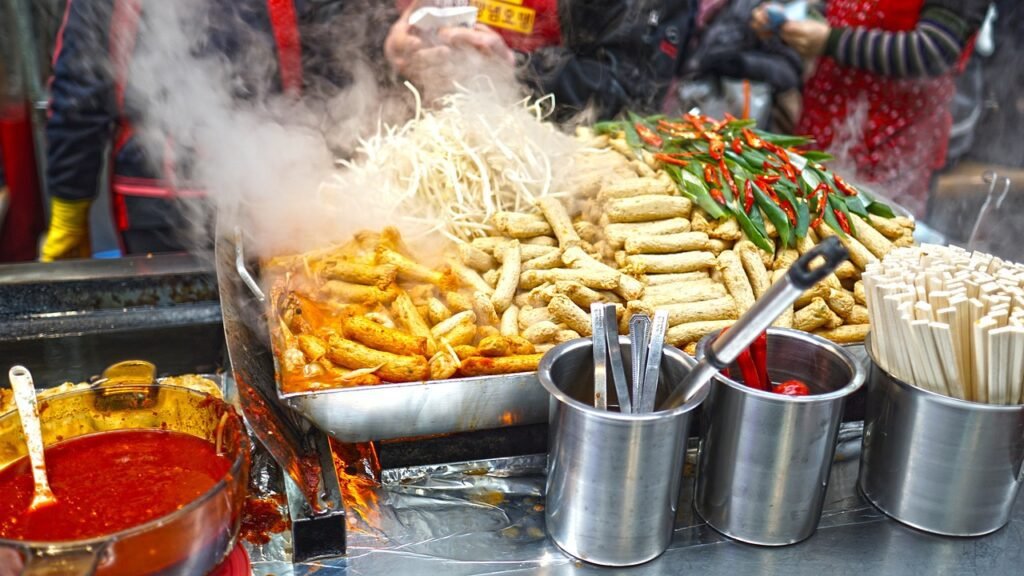
If you’re a fan of spicy foods, you may want to reconsider indulging in them immediately after your workout. While some people love the kick of heat, spicy foods can actually be problematic for your post-workout recovery. Consuming spicy foods after exercise can irritate your stomach, leading to discomfort and even indigestion.
Spicy foods, such as chili peppers, hot sauces, and curries, contain a compound called capsaicin, which gives them their fiery taste. Capsaicin can increase gastric acid production, leading to heartburn and acid reflux. This can be especially uncomfortable after a workout when your body is already under stress.
Additionally, spicy foods can increase body temperature and sweating, which can exacerbate dehydration and hinder your body’s ability to recover effectively. When you exercise, it’s important to stay properly hydrated, and consuming spicy foods can further deplete your body’s water levels.
While a little bit of spice can be enjoyable, it’s best to avoid overly spicy foods immediately after your workout. Opt for milder options and save the heat for another time. Your stomach will thank you, and you’ll be able to fully enjoy the benefits of your exercise without any unnecessary discomfort.


